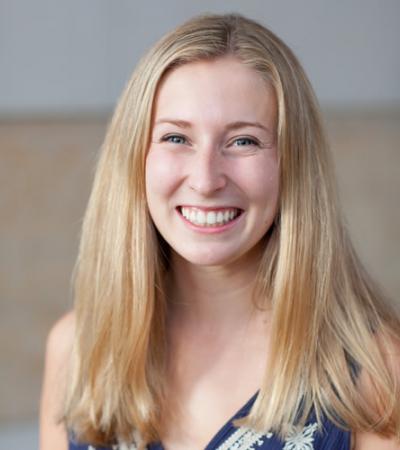This bio is current as of 2022.
Sarah Pieslak currently works as a Program Officer at the Michael J. Fox Foundation for Parkinson’s Research, working closely with staff scientists and external awardees to support key research areas. She manages a highly collaborative program related to biospecimen distribution as well as a portfolio of individual grants focused primarily on imaging diagnostics. Prior to joining MJFF, Sarah spent two years at Global Health Strategies, a consulting company that uses advocacy and policy analysis to power campaigns to improve health in lower-income countries. In this role, Pieslak supported clients to advance a range of issue areas, primarily vaccine delivery, health misinformation and food systems. Briefly after graduation, Pieslak supported the development of case studies at Princeton University’s Innovations for Successful Societies program to share policy best practices in resource-poor settings.
She holds a Bachelor of Science in Chemical Engineering from the University of Notre Dame with a minor in Peace Studies. As a Kellogg International Scholar, she worked with Professor Tracy Kijewski-Correa to conduct research to improve toilet facilities in Leogane, Haiti, with a focus on participatory design methods to meet the unique needs of the community. In January 2017, Pieslak traveled to Léogâne, Haiti to evaluate current toilet facility options and attitudes toward future facilities through original fieldwork using funding from a Kellogg ISP break grant.
This profile was current as of 2019 when she was part of the on-campus Kellogg community.
Since the onset of her sophomore year, Sarah Pieslak has been tackling the challenge of dignified sanitation in Haiti in conjunction with Notre Dame Engineering2Empower. Within this project, she utilizes design-thinking, an iterative problem-solving strategy that emphasizes a deep understanding of human wants, values and needs, to ensure inclusivity and sustainability of any sanitation solutions. After discerning key design requirements from original fieldwork and conducting a technology survey, Pieslak and her advisor devised a toilet concept with an accompanying service model. Pieslak and her advisor are currently working with the Notre Dame IDEA center to optimize technical specifications and collaborating with a venture coach to commercialize the product.
In January 2017, Pieslak traveled to Léogâne, Haiti to evaluate current toilet facilities and attitudes toward future facilities through original fieldwork using funding from a Kellogg ISP break grant. During this time, she conducted focus groups, household interviews and a local brainstorm workshop with local community partners. The synthesized insights from this data formed a body of design research for market-validated concept development. Pieslak also presented the benefits of using a human-centered approach to development challenges at the 2018 Human Development conference. Pieslak is currently in the process of applying for a Fulbright research grant in Peru to evaluate innovation ecosystems in Andean villages and propose a methodology that blends traditional problem-solving methods with elements of design-thinking.






